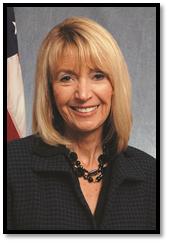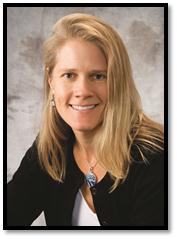University Communications and Marketing
Professional women honored in Chicks in Science for being role models for girls
February 28, 2012
Contacts:
Kim Schweikert, Chicks in Science Coordinator, 896-5888
Dan Carter, University Relations, 657-2269
5th annual event set this weekend at Alterowitz Gym
MSU BILLINGS NEWS SERVICES — The director of the U.S. Geological Survey and a research director for Billings Clinic are being recognized this week for their work as role models for young girls interested in science careers.
The honors are being made by Montana State University Billings’ “Chicks in Science” program. The awards will be officially announced at the 5th annual Chicks in Science event at MSU Billings on Saturday, March 3 from noon to 4 p.m. It is free and open to all.
Recognized as a “Nationally Outstanding Chick in Science” will be Dr. Marcia McNutt, director of the U.S. Geological Survey. According to Kim Schweikert, the MSU Billings senior programmer who coordinates the annual event, McNutt is being honored not only for her passion for science, but her commitment to serving her county.
Recognized as Montana’s “Outstanding Chick in Science” will be Dr. Elizabeth Ciemins, research director for the Billings Clinic Center for Clinical Translational Research. Selected from 18 nominees statewide, Schweikert said Ciemins will be honored for her commitment to science and service to the community.
“Dr. McNutt and Dr. Ciemins are perfect examples of what we try to inspire the girls at Chicks in Science to be; confident, intelligent, inquisitive and community minded,” Schweikert said. “They have taken their passion for science and made a difference in their community on a local and national level and both women use what they’ve learned to inspire girls to dream big.”
She added that colleagues describe McNutt as “extraordinary” and the staff at Billings Clinic say Ciemins is an “inspiration.”
“It doesn’t get any better than that,” Schweikert said.
 McNutt grew up in Minneapolis and received a bachelor's degree in Physics from Colorado
College, Phi Beta Kappa, Summa Cum Laude, and a doctorate in Earth Sciences from Scripps
Institution of Oceanography. She previously served as professor of geophysics at
Massachusetts Institute of Technology and as President and Chief Executive Officer
of the Monterey Bay Aquarium Research Institute (MBARI), in Moss Landing, Calif.
McNutt grew up in Minneapolis and received a bachelor's degree in Physics from Colorado
College, Phi Beta Kappa, Summa Cum Laude, and a doctorate in Earth Sciences from Scripps
Institution of Oceanography. She previously served as professor of geophysics at
Massachusetts Institute of Technology and as President and Chief Executive Officer
of the Monterey Bay Aquarium Research Institute (MBARI), in Moss Landing, Calif.
McNutt has sailed on numerous oceanographic research voyages and published more than 100 peer-reviewed scientific articles. Her research has primarily focused on processes that lead to volcanic eruptions and formation of mountain belts far from the edges of the tectonic plates, and therefore are not explained by the plate tectonic paradigm.
In 2009, she became director of the United States Geological Survey, where her responsibilities include leading the nation’s largest water, earth, biological science and civilian mapping agency in its mission to provide the scientific data that enable decision makers to create sound policies for resource management and reducing vulnerability to natural hazards.
She is a member of the National Academy of Sciences, the American Philosophical Society, and the American Academy of Arts and Sciences. The American Geophysical Union awarded her the Macelwane Medal in 1988 for research accomplishments by a young scientist and the Maurice Ewing Medal in 2007 for her significant contributions to deep-sea exploration.
 Ciemins holds a PhD in Health Services and Policy Analysis and has been a health researcher
for more than 20 years. She is the research director for the Billings Clinic Center
for Clinical Translational Research.
Ciemins holds a PhD in Health Services and Policy Analysis and has been a health researcher
for more than 20 years. She is the research director for the Billings Clinic Center
for Clinical Translational Research.
Her passion for conducting women’s and children’s health services research stems from her years in the Peace Corps. From this experience, she made the decision to use research to change policy to effectively improve the health of women and children. Since then, she has expanded her goals to study and improve all areas of health care.
Ciemins has an energizing personality which makes people want to learn more about research and the possibilities for the future. She also spends significant time in the community as a volunteer, serving at science fairs. She also co-founded the Research Group of Eastern Montana (R-GEM) with Hillary Hanson from RiverStone Health. This group is open to all researchers in the region. Members include researchers from all health care facilities, colleges and universities and others from both the private and public sectors.
“Chicks in Science” was developed in 2008 to encourage grade school and middle school-aged girls to enter math- and science-related fields. The event routinely draws hundreds of participants and about 50 booths from area science- and math-based exhibitors.
Studies show that between the fourth and eighth grades, girls start losing interest in math and science. Yet, industry surveys indicate that many emerging careers will require an understanding of science, technology, engineering and math (STEM) and the problem-solving, critical thinking, adaptive and collaborative skills gained through the study of these subjects.
For more information, go to www.msubillings.edu/chicks/.
